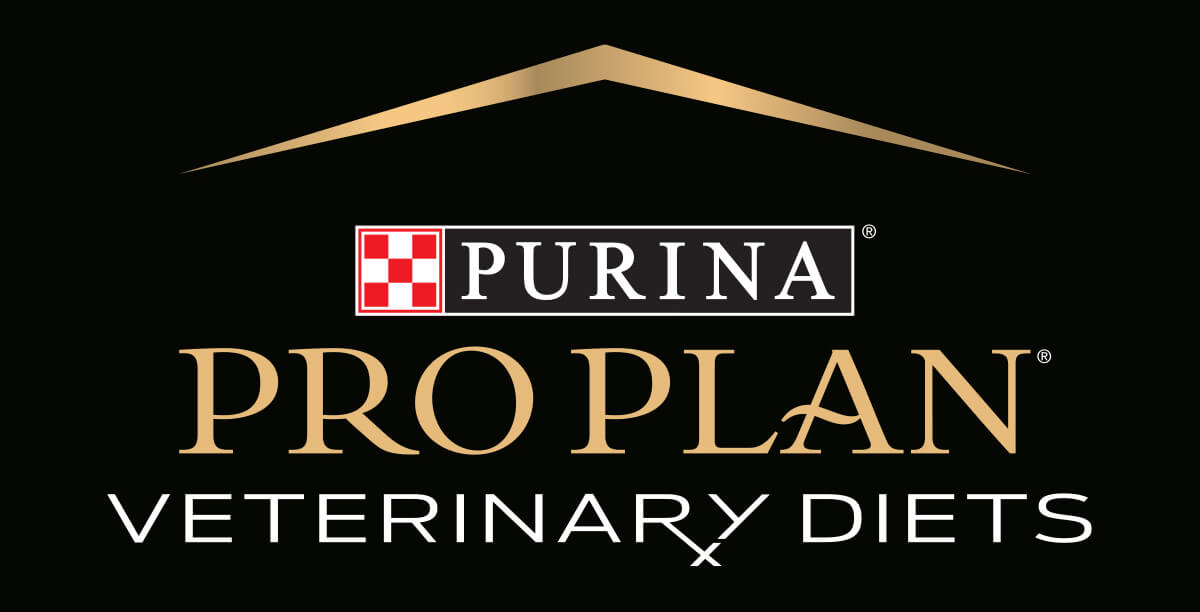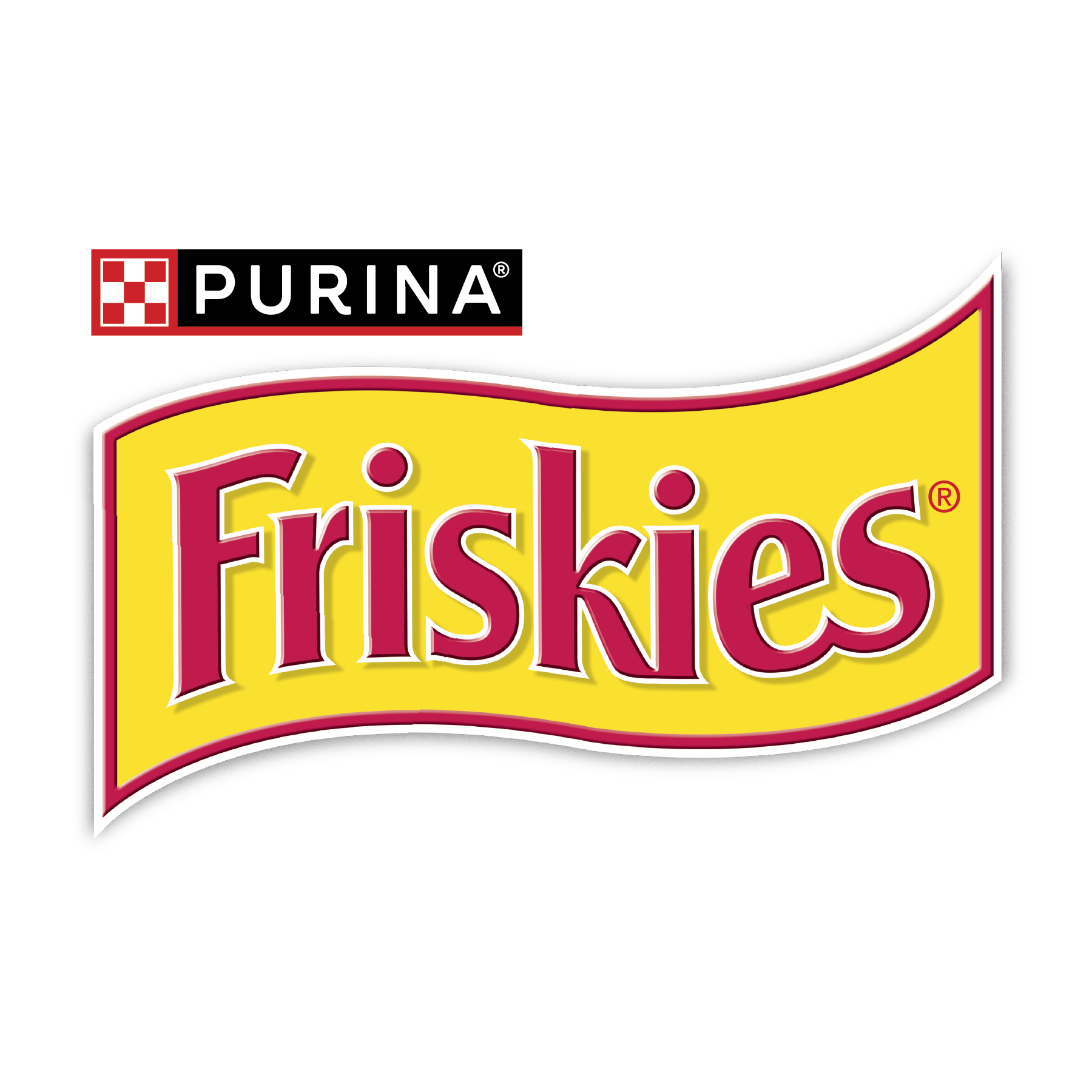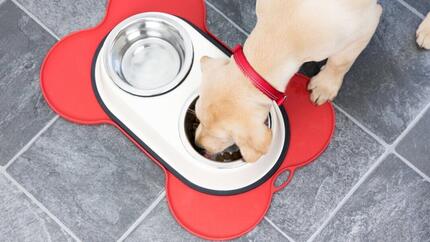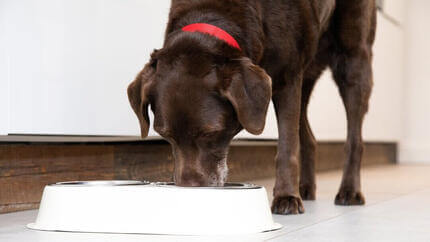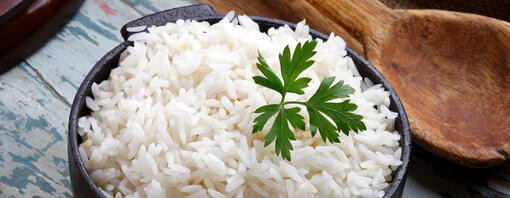
We know it as the versatile ingredient in our cupboard and we can always trust rice to taste good no matter what flavours it sits next to. What’s more, rice also serves as an important source of vitamins and a good source of energy.
With all these benefits packed in such tiny grains, who would blame our furry friends for taking an interest in this particular starchy food? But can dogs eat rice? And with so many varieties available, which type of rice is most suitable for canine needs? Keep reading to find out all about dogs, rice and whether the two should meet at dinner time or not.
Can dogs eat rice?
Yes, dogs can eat rice. In fact, you may have noticed rice featured as an ingredient in commercial dog foods. However, a rice meal on its own should not be a daily affair – rice should only be part of a varied diet that offers all the nutrients your dog needs. Dogs can eat rice in moderation as long as it’s simply cooked, without any seasoning or flavours, and as long as it’s included as part of your dog’s balanced diet.
Can dogs eat white rice?
Yes, dogs can eat white rice. Although lower in nutritional value than brown rice, white varieties of rice can be included in a dog’s diet. Since it’s fairly bland, vets often recommend white rice for dogs with an upset stomach. White rice has a bigger effect on blood sugar than brown rice though, which means that some people advise caution with white rice for dogs suffering from diabetes. If your dog is diabetic then it’s best to consult your vet as to the best diet to give.
Can dogs eat brown rice?
Yes, dogs can eat brown rice. What’s more, this type of rice packs a bigger nutritional punch than the white version because it retains the outer layer of the seed which contains many important nutrients. On the downside, brown rice may be harder for your dog to digest for the same reason. This means that many vets recommend white rice over brown for pups suffering from gastro-intestinal problems.
Can dogs eat basmati rice?
Yes, dogs can eat basmati rice. Just as for other types of rice, as long as you offer portions in moderation, cooked as simply as possible without any salt, dogs should be able to enjoy some basmati rice. Basmati rice comes in white and brown varieties, and vets sometimes recommend white basmati rice as a bland meal to take care of an upset stomach.
Is rice good for dogs?
Rice is packed with many essential nutrients, but there are a few differences between the different types of this grain. The whole grain version known as brown rice tends to win on nutritional value as it’s higher in vitamins and fibre than white rice. However, your dog should get all the nutrients they need from their complete and balanced dog food, so if you’re only feeding a small amount of rice alongside this food then you don’t need to worry about adding extra nutritional value.
Compared to brown rice, white rice cooks faster, it’s easier for dogs to digest and it’s been used to cut short the trouble of many pups with upset tummies. Whatever option you choose to feed your dog, it’s always a good idea to keep an eye on their reaction to rice, especially if you’re introducing it for the first time in their diet. Allergic reactions are rare, but if you notice hair loss or itchiness, make sure you contact your vet for help.
How to feed rice to dogs
If you’ve decided which type of rice to offer to your dog and you’re looking for cooking tips, the good news is that when it comes to dogs, you can go for the simple version of the recipe. Boil the rice in plain water, don’t add any salt and keep the flavourings for the human dinner table.
As with any addition to a balanced diet, we advise only feeding rice in moderation. As a guide, aim to feed your dog rice no more than two to three times a week. However, if your vet has advised to feed rice every day for a period of time for medical reasons, it’s always best to follow their advice.
If you’re curious to know what other staple human foods you can add to your pet’s menu and which ones to keep paws away from, read our articles Can Dogs Eat Bread and Can Dogs Eat Cheese, next.






